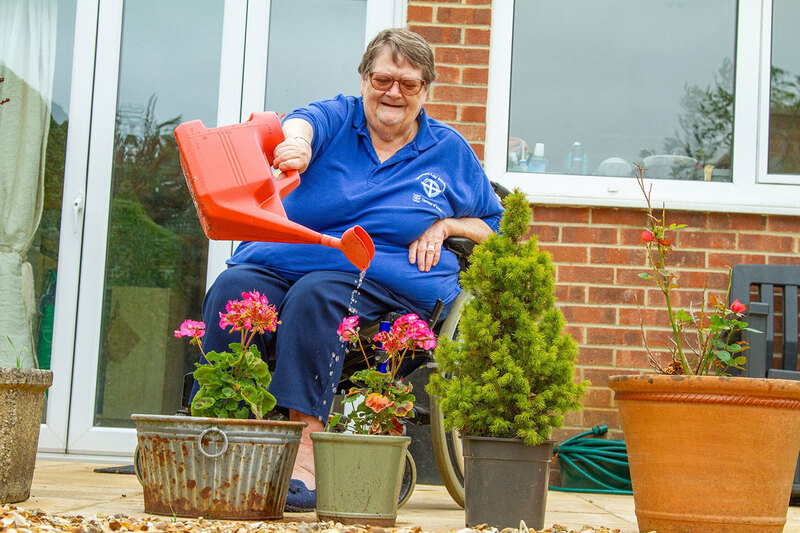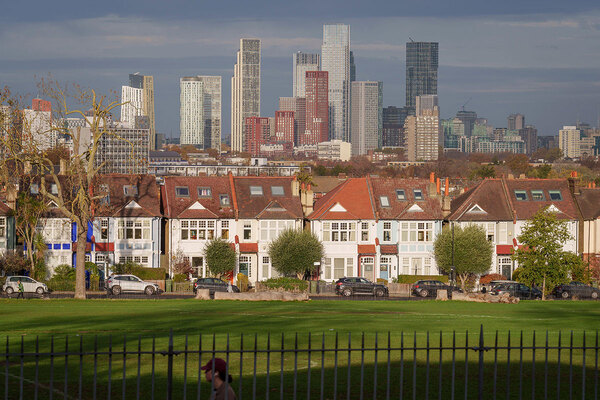Heatwave death warning issued with inadequate housing a key factor
Extreme summer heat could lead to more than 5,000 deaths this year, with those living in poor-quality homes at greatest risk, a charity has warned.

The Centre for Ageing Better warned that Britain’s ageing housing stock poses a “significant” risk for residents this summer and during increasingly hotter summers in the future.
It said the UK has the “poorest insulated housing stock” in Europe, so homes lose heat quicker during the winter and they are very poor at keeping heat out during the summer.
The estimated number of deaths is based on a figure from the Office for National Statistics, which found that the hot weather of 2022 was a factor in more than 4,500 heat-related deaths. Current data indicates that 2025 could be even warmer.
The UK Health Security Agency issued three heat health alerts in June this year. In comparison, it issued just one alert to a smaller area of the country in June 2022.
So far, this summer has seen higher average temperatures than in the same period in 2022. The average maximum daily temperature in England in June 2025 was 21.9°C, compared to 20°C in June 2022, according to the Met Office.
Plus, the number of extremely hot days this year is also higher, with 12 days exceeding 28°C in England in 2025 to the end of June, compared to just six days exceeding 28°C by the end of June in 2022.
Older people, very young people, people with pre-existing medical conditions and those from ethnic minority households have been identified by the government as being at heightened risk from increased temperatures.
This is why the Centre for Ageing Better said it is “extremely concerned about the significant heat health risk” to the older population, as around four in five heat-related excess deaths will occur in people aged 65 and over.
There are more than three million people aged 65 and over in the UK living in properties between 45 and 80 years old that are most likely to overheat.
They may also have respiratory and cardiovascular conditions, so they are more likely to have their health impacted by a heatwave. The body’s ability to regulate body temperature also worsens with age.
More than 488,000 households headed by someone aged 65 and over have reported their homes overheating during the summer months.
National surveys also found that 1.9 million households (8%) have reported at least one part of their homes becoming uncomfortably hot.
Emergency services are likely to experience increasing pressures as warm days lead to an additional 12,000 hospital admissions a year. During the 2022 heatwave, the London Ambulance Service received a 999 call every 13 seconds.
At 30°C outside, the temperature within a UK home will rise by five degrees within three hours – double the rate of heat gain in other parts of Europe.
The Centre for Ageing Better called on the government to tackle the country’s poor-quality housing crisis, which leaves 7.5 million people living in unsafe homes in England, in its upcoming Housing Strategy.
It is also asking for the creation of ‘good home hubs’, a national network of one-stop shops for home improvement services, to give people better access to support and information on improving their homes.
“Current estimates indicate that the average number of heat-related deaths in this country could triple to 7,000 every year by the 2050s,” said Millie Brown, deputy director for homes at the Centre for Ageing Better.
“When building new homes or retrofitting existing homes, we need to consider how to keep homes cool in summer, as well as warm in winter. People also need access to information and advice if there are issues with overheating in their homes.
“This change in our nation’s climate is already set in motion. But we can mitigate some of the worst of its impact by building better-quality homes that offer people shelter from extreme weather while also giving people better support to improving the state of their homes.
“The government should be including how to tackle both these challenges in its forthcoming housing strategy.”
The Ministry of Housing, Communities and Local Government was approached for comment.


